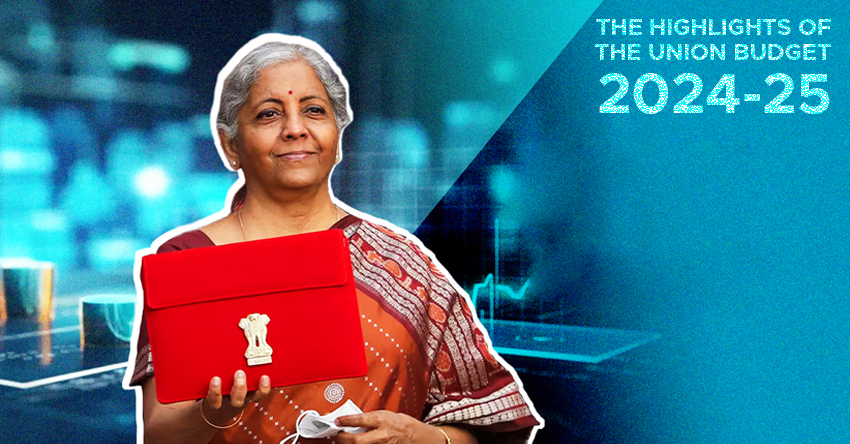Finance Minister Nirmala Sitharaman presented the Union Budget 2024 in Parliament today, marking a significant shift in economic policy with a focus on the poor, women, youth, and farmers. The budget outlines a range of measures designed to boost spending, create jobs, and provide relief to the middle class while implementing notable changes in taxation and customs duties.
Key Highlights of the Budget
Tax Reforms:

One of the standout features of this year’s budget is the overhaul of the income tax regime. The new tax slabs under the New Tax Regime are designed to simplify and reduce the tax burden:
- Income up to ₹3 lakh: No tax
- ₹3 – 7 lakh: 5%
- ₹7 – 10 lakh: 10%
- ₹10 – 12 lakh: 15%
- Above ₹15 lakh: 30%
Additionally, the standard deduction has been increased from ₹30,000 to ₹75,000, providing a tax saving of ₹17,500. The deduction on family pension for pensioners has also been raised from ₹15,000 to ₹25,000.
Capital Gains and Taxation:

The budget introduces significant changes in capital gains taxation. Short-term capital gains tax has been reduced to 20%, while long-term capital gains tax has been set at 12.5% for certain assets. The Securities Transaction Tax (STT) has been increased, with STT on options rising to 0.1% and futures to 0.02%.
Customs Duty Adjustments:

Customs duties have seen various adjustments:
- Reduction in basic customs duty on gold and silver to 6% and platinum to 6.4%.
- Increased duty on telecom equipment to 15%.
- Duty reduced on mobile phones, PCBA, and chargers to 15%.
- Exemption of customs duties on 25 critical minerals.
Employment and Skilling Initiatives:

A substantial allocation of ₹2 lakh crore over five years is set aside for job creation. The budget introduces three new employment-linked schemes, including one providing direct benefit transfers of up to ₹15,000 for new employees. There is also a scheme to reimburse employers up to ₹3,000 per month for EPFO contributions for additional employees. Additionally, working women will benefit from new hostels and crèches to facilitate higher workforce participation.
Support for Agriculture:

The budget allocates ₹152 lakh crore for agriculture and allied sectors. It aims to enhance productivity with 109 new high-yielding, climate-resilient crop varieties and the promotion of natural farming. The government will also focus on developing large-scale vegetable production clusters and supporting shrimp farming through financial aid and infrastructure development.
Infrastructure and Development:

The capital expenditure (Capex) outlay remains robust at ₹11.1 lakh crore, focusing on infrastructure development. The budget includes allocations for a new Pradhan Mantri Janjatiya Unnat Gram Abhiyan for tribal villages and the establishment of 100 branches of India Post Payments Bank in the Northeast.
Fiscal Deficit and Borrowing:

The fiscal deficit is estimated at 4.9% of GDP for the current fiscal year, with a target of reducing it to 4.5% by next year. Planned gross market borrowing has been lowered by ₹12,000 crore, aiming for a gross borrowing of ₹14.01 lakh crore for FY 2025.
The Union Budget 2024 underscores the government’s commitment to economic growth and social welfare. By focusing on tax reforms, employment generation, and sector-specific support, it aims to foster inclusive development and enhance India’s economic resilience amidst global uncertainties.

Your style is really unique in comparison to other people I’ve read stuff from. Thanks for posting when you have the opportunity, Guess I’ll just book mark this page.